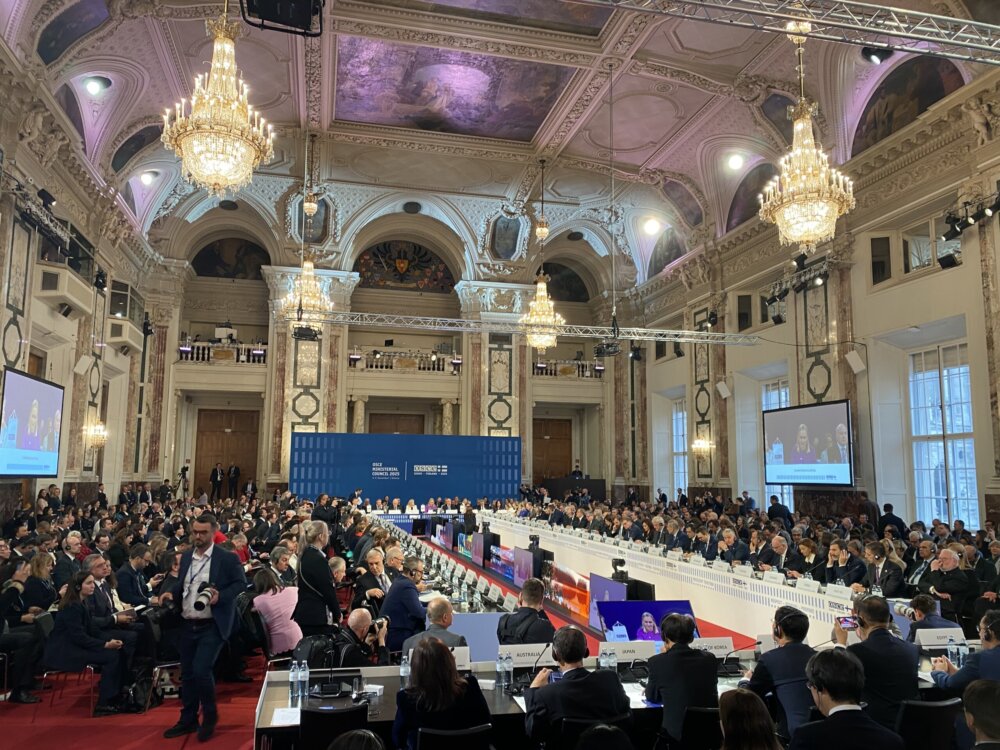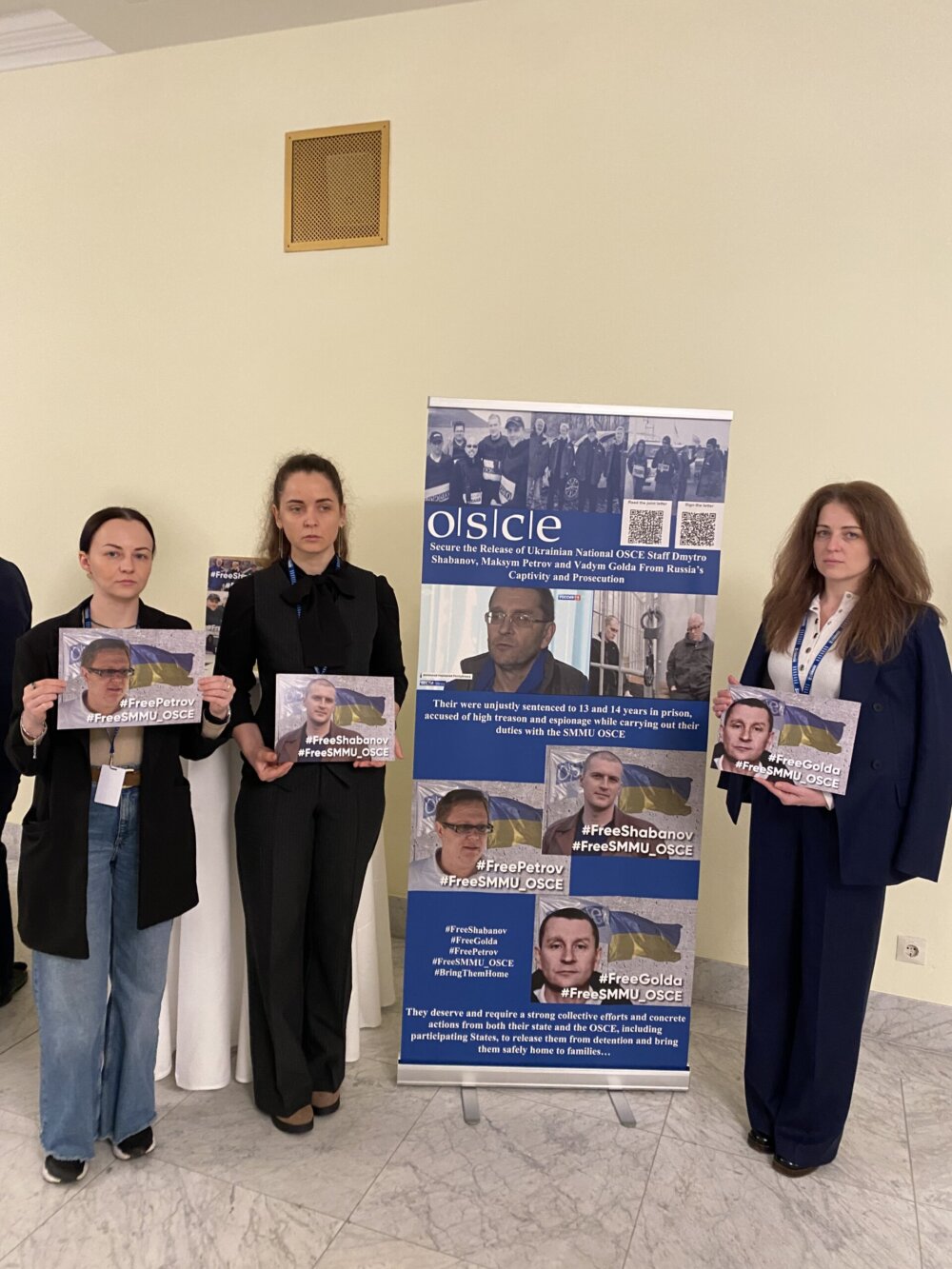Exclusive: 13 candidates are competing for the OSCE’s top 4 leadership posts
13 candidates have been officially nominated by their governments for the OSCE’s four senior leadership posts, according to OSCE diplomats who spoke on the condition of anonymity.
May 31 marked the OSCE’s official deadline to nominate candidates for the four posts.
The Maltese OSCE Chairpersonship announced the candidates to all OSCE permanent missions in an internal letter on June 3.
The Chairpersonship of Malta declined to comment for this story.
The nominated candidates are as follows:
Candidates for OSCE Secretary General:
Jan Braathu (Norway) – Head of the OSCE Mission to Serbia
Igli Hasani (Albania) – Minister for Europe and Foreign Affairs of Albania
Christophe Kamp (Netherlands) – Permanent Representative of the Netherlands to the OSCE
John MacGregor (Canada) – Head of the OSCE Center in Ashgabat
Marcel Peško (Slovakia) – Special Representative of the OSCE Chair-in-Office, OSCE Project Co-ordinator in Ukraine
Feridun Sinirlioğlu (Türkiye) – Special Coordinator, Independent Assessment Mandated by UN Security Council Resolution 2679 (2023)
Candidates for Director of the OSCE Office for Democratic Institutions and Human Rights (ODIHR):
Igor Djundev (North Macedonia) – Director for Multilateral Affairs at the Foreign Ministry of North Macedonia
Rita Izsák-Ndiaye (Hungary) – Senior Advisor on Anti-Racism at UNDP
Tea Jaliashvili (Georgia) – First Deputy Director of ODIHR
Christophe Kamp (Netherlands) – Permanent Representative of the Netherlands to the OSCE
John MacGregor (Canada) – Head of the OSCE Center in Ashgabat
Dunja Mijatović (Bosnia and Herzegovina) – Human rights expert and activist.
Maria Telalian (Greece) – Legal Adviser of the Greek Ministry of Foreign Affairs and Head of the the Legal Department
Candidates for OSCE High Commissioner on National Minorities (HCNM):
Rita Izsák-Ndiaye (Hungary) – Senior Advisor on Anti-Racism at UNDP
Christophe Kamp (Netherlands) – Permanent Representative of the Netherlands to the OSCE
John MacGregor (Canada) – Head of the OSCE Center in Ashgabat
Ketevan Tsikhelashvili (Georgia) – Permanent Representative of Georgia to the OSCE and other International Organizations in Vienna
Candidates for OSCE Representative on Freedom of the Media (RFoM):
Jan Braathu (Norway) – Head of the OSCE Mission to Serbia
John MacGregor (Canada) – Head of the OSCE Center in Ashgabat
Petr Mareš (Czechia) – Executive Director of the International Visegrad Fund in Kosovo
Tight schedule ahead
At the OSCE Ministerial Council meeting in December 2023, Russia agreed to extend the mandates of the current incumbents for only nine months instead of the customary three-year term, necessitating the impending change in OSCE leadership.
The mandates of the current incumbents – OSCE Secretary General Helga Schmid, Director of the OSCE Office for Democratic Institutions and Human Rights (ODIHR) Matteo Mecacci, OSCE High Commissioner on National Minorities (HCNM) Kairat Abdrakhmanov and OSCE Representative on Freedom of the Media (RFoM) Teresa Ribeiro – are set to expire on Sept. 3, 2024.
Russia has frequently criticized the current senior leadership, for example saying that Secretary General Schmid has “taken the side” of Ukraine. Russia has also frequently criticized ODIHR, saying that it has “focused its work exclusively on the countries ‘east of Vienna’” and “closes its eyes to the numerous human rights violations in the West.”
The Maltese Chairpersonship will be leading the negotiations to select a new leadership on a tight schedule. Previous leadership packages took several months to negotiate. In 2017, under Austria’s Chairpersonship, an informal gathering of foreign ministers was required to break the deadlock.
A challenging negotiation process
Unlike other international organizations (such as the United Nations, which has recently employed a more public process to nominate and select its Secretary General), the OSCE practices a selection of senior leaders that occurs entirely behind closed doors.
Additionally, other than the need to eventually pass a consensus decision on the four posts on the level of ministers, there are no established procedures for the consultation process and the eventual selection. It is up to the country chairing the OSCE to find ways for reaching consensus, including organizing consultations and potential hearings or interviews with candidates.
During the 57-state consultation process, the Chairpersonship plays the role of an honest broker – a sufficiently neutral party that can help create consensus.
Judging by the leadership deals reached in 2017 and 2020, the four posts will likely be negotiated as part of a package. All four positions must be agreed upon together, making the negotiation process more complex and leaving it open to potential deadlock.
Furthermore, there is an informal understanding that there should be geographical and gender balance for the four posts.
Like with all other OSCE decisions, the appointments can only be made after consensus has been reached among all 57 participating OSCE states. Any member state can unilaterally block an agreement if that state for example tries to press for concessions elsewhere, or to push through its own candidate.
One major challenge for the Maltese Chairpersonship will be achieving consensus on a new senior leadership against the backdrop of the ongoing Russian war against Ukraine and the possibility of Moscow blocking candidates it deems unsuitable.
A field dominated by career diplomats and OSCE insiders
The field of candidates this year is largely dominated by people from EU and Western or NATO states. Some candidates are OSCE insiders, some are experts and many are career diplomats. Some of them may be seen as less politically exposed, which could make it easier to agree on their selection. Some candidates have also been nominated for multiple roles, potentially providing greater flexibility and helping the Chair forge agreement.
The current list of candidates contains only one current foreign minister and one former foreign minister. The previous list in 2020 contained four former foreign ministers.
Igli Hasani, the current Minister for Europe and Foreign Affairs of Albania, was previously Albania’s Permanent Representative to the OSCE, as well as Coordinator of OSCE Economic and Environmental Activities. Hasani was also Chairperson of the Permanent Council when Albania held the OSCE Chairpersonship in 2020.
The list of candidates also contains one former foreign minister, Feridun Sinirlioğlu, who served in that position as part of Türkiye’s interim government in 2015.
A novelty on the current list is the joint nomination, by Türkiye and Greece, of Feridun Sinirlioğlu and Maria Telalian, two candidates who will be considered as a package.
In the current list, gender balance is only partially achieved since out of the 13 candidates, there are only 5 women.
If negotiations reach a deadlock, it is possible that the Maltese Chair will have to come up with alternative names in order to reach consensus.
The Chair has followed prior practice of engaging a group of trusted ambassadors, usually some of the longest-serving, to assist in the consultation process. The other members of the OSCE Troika (presently North Macedonia and Finland), are usually also involved in the negotiations.



Comments
* Your email address will not be published